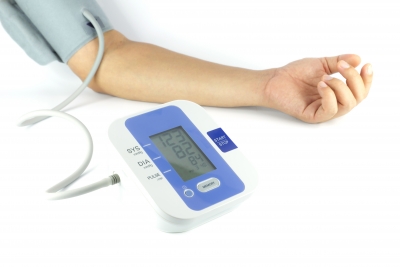Lower Your Blood Pressure without Medication
 Here are 7 ways to lower your blood pressure without medication.
Here are 7 ways to lower your blood pressure without medication.
1. Use a home blood pressure monitor
Monitor your blood pressure at home, as well as your doctor’s office. Combining your readings with your doctor’s will give a better measure of your high blood pressure and treatment to control it. Home monitoring will also rule out if you suffer from “white coat hypertension”. It is ideal to monitor your blood pressure at the same time every day.
2. Eat potassium rich foods.
Potassium works to balance out the sodium in your diet. An adequate potassium intake can lower systolic pressure and diastolic pressure. Some good potassium sources include cantaloupe, bananas, dates, nuts, oranges, and green leafy vegetables. If you are taking diuretics (i.e. water pills) to lower blood pressure, the excess urination can cause loss of potassium for some diuretics.
3. Reduce caffeine intake.
Limit caffeine from tea, coffee, soda, sports drinks, and chocolate to maintain healthy blood pressure levels. Caffeine can lead to short, but significant increases in blood pressure.
4. Manage stress.
Coping strategies to deal with stress can promote high blood pressure levels, such as overeating, smoking, and increased alcohol consumption. Implement stress management strategies to avoid these pitfalls.
5. Increase your magnesium intake.
Research has shown an inverse relationship between magnesium and blood pressure. Individuals with a high magnesium intake, typically have a low blood pressure. Some good sources of magnesium include peas, beans, whole grains, nuts, seeds, lima beans, squash, broccoli, spinach, and seafood.
Implement the DASH diet to consume adequate levels of potassium and magnesium daily. For greatest success, implement changes gradually versus all at once.
6. Get adequate sleep.
Research indicates insomnia may be linked to high blood pressure. Take steps to protect your sleep, such as going to bed and getting up at the same time every day (even on weekends), power down for one hour before bed (meaning no electronic devices), and have a regular bedtime ritual.
7. Lose weight.
Being overweight or obese increases your risk for high blood pressure. As you gain weight, your blood pressure tends to rise. Weight loss of only ten pounds can positively impact blood pressure levels. Overweight is defined as a BMI of 25 to 29.9 and obesity is a BMI equal to or greater than 30.
If you are working to lower blood pressure, sign up for the free ecourse 7 Natural Ways to Lower Blood Pressure at http://lowerbloodpressurewithlisa.com.
All the best,
Lisa Nelson RD
Health Pro for HealthCentral
Image courtesy of markuso / FreeDigitalPhotos.net



